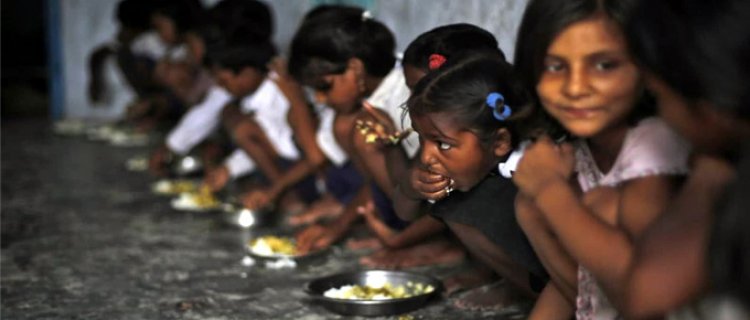India denies the ranking of the Global Hunger Index, citing "malafide intent."
New Delhi, in response to the Global Hunger Report 2023, placing India at 111th among 125 nations, has raised objections over what it deems a "flawed" assessment methodology.

New Delhi, in response to the Global Hunger Report 2023, placing India at 111th among 125 nations, has raised objections over what it deems a "flawed" assessment methodology. The Ministry of Women and Child Development, in a statement, criticized the Global Hunger Index, asserting it fails to accurately represent India's actual standing due to significant methodological shortcomings.
The Global Hunger Index, jointly released by Concern Worldwide from Ireland and Welt Hunger Hilfe from Germany, is a widely recognized tool for gauging hunger levels across global, regional, and national scales.
According to the report, India received a score of 28.7, indicating a "serious" level of hunger. It further disclosed that 16.6% of the population grapples with undernourishment, with a mortality rate of 3.1% among children under five. Notably, India recorded the highest rate of child 'wasting,' signifying acute undernutrition, at 18.7%.
The index also highlighted that 58.1% of Indian women aged 15-24 suffer from anemia, a condition stemming from insufficient healthy red blood cells.
India's ranking falls below neighboring countries like Pakistan (102nd), Bangladesh (81st), Nepal (69th), and Sri Lanka (60th). This marks a continuation of the trend observed in 2022, where India also ranked lower than its regional peers.
The Health Ministry emphasized that three out of the four indicators used in the index calculation pertain exclusively to child health, rendering it non-representative of the entire population.
Additionally, the government criticized the fourth indicator, the 'proportion of undernourished (PoU) population,' citing an opinion poll with a meager sample size of 3,000 as the basis. The Ministry regarded this approach as fundamentally flawed and displaying evident bias.
Furthermore, the Health Ministry asserted that the index neglected to incorporate data gathered through the government's Poshan Tracker application, a key tool in the fight against malnutrition. Despite the endorsement of international organizations such as UNICEF, WHO, and the World Bank, the Tracker's data was not utilized.
Based on Poshan Tracker data, the percentage of child 'wasting' in India consistently remains below 7.2% on a month-to-month basis, significantly lower than the 18.7% indicated in the Global Hunger Index 2023.
The statement also challenged the assumption that child mortality is a direct consequence of hunger, citing a lack of substantial evidence.
The Indian government underscored its commitment to addressing food security concerns, allocating over 112 million metric tonnes of food grains in the financial years 2020-21 and 2022-23, benefiting nearly 80 million individuals. The statement further emphasized the extension of this program in January 2023, touting it as the "largest food security program in the world."





















